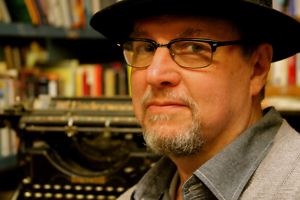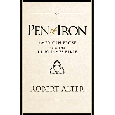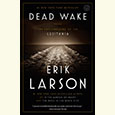The Ball is Your Heart
Kwame Alexander talks with Chapter 16 about basketball, family, and the rules of life
The Crossover is full of lessons, including ten rules for life. The first rule: “In this game of life / your family is the court / and the ball is your heart.” This young adult novel, winner of the 2015 Newbery Medal for the Most Distinguished Contribution to American Literature for Children, is told in verse. The narrator is Josh Bell, a middle-school basketball star with a twin brother named Jordan. The author is Kwame Alexander, a poet and educator who visits schools across the globe, spreading the gospel of poetry and youth empowerment.
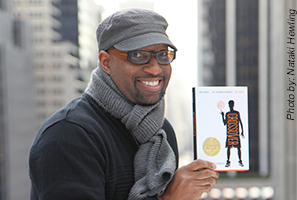 Alexander recently answered questions from Chapter 16 via email:
Alexander recently answered questions from Chapter 16 via email:
Chapter 16: The Bell twins excel at basketball and listen to hip-hop. They also have two involved parents, study hard in school, and exhibit tenderness and vulnerability. It is rare in popular culture to see depictions of such fully drawn characters who are African American. Does your work explicitly combat black stereotypes, or is that simply a function of your artistic vision?
Kwame Alexander: I think the question is much more interesting than any answer I could offer. I do not think it is rare to see such “fully drawn” characters. I think our vision—as readers, as humans—is blurred. I think we see what we want to see. I think on my block, growing up in Brooklyn and Chesapeake, Virginia, there were plenty of Joshes and Jordans. I think I just set out to write a book to remind you of that fact, of that slightly different reality. I think that too often the books that play to the stereotypes are the ones that get published.
Chapter 16: What are the advantages of writing a young-adult novel in verse? Does it make young readers more likely to pick up your book?
Alexander: I decided to write The Crossover in verse because I felt that poetry would mirror best the energy, movement, and pulse of a basketball game. I’ve always thought that if you want to get reluctant readers engaged with literature, start with poetry. Read them Nikki Giovanni; teach them haiku; plan an open mic; let them be firsthand witnesses to the power of accessible, relatable poetry. Recently a kid I met at a book event told me, “I opened up The Crossover, and was like, ugh, these are poems. But then, I started reading them, and I couldn’t put it down. It was like good poetry, and it told a story. The best thing ever.” So, yeah, there are advantages, but it’s also much harder to do, I think, because you have to write a novel, and you have to write a book of poems, and then you have to marry them so that they become one. That’s not easy. But it is fun.
Chapter 16: Since the 1960s, writers have compared basketball to jazz, seeing parallels in their rhythms, their improvisations, and their dynamic between the individual and the group. Do you see intersections between music and sports? If so, how might that shape your dynamic descriptions of the game scenes in The Crossover?
Alexander: It’s all about teamwork in basketball and jazz. In all of his genius on “So What,” Miles Davis wanted Coltrane to jam with him. And look at the magic that ensued. Just like Michael Jordan needed Scottie Pippin. (OK, I’m not comparing Coltrane with Scottie Pippin, folks. It’s just to illustrate the point). The point is that in both jazz and hoops, the individual, no matter how amazing, succeeds because s/he recognizes the value and participation of the group. One for all, all for one.
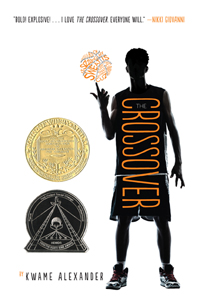 I think the same can be applied to the poems in The Crossover. They each had to shine individually, but they also had to work together for the greater good—the story. Wynton Marsalis captured the essence of this relationship between the individual and the group when he said, “As long as there is democracy, there will be people wanting to play jazz because nothing else will ever so perfectly capture the democratic process in sound. Jazz means working things out musically with other people. You have to listen to other musicians and play with them even if you don’t agree with what they’re playing.”
I think the same can be applied to the poems in The Crossover. They each had to shine individually, but they also had to work together for the greater good—the story. Wynton Marsalis captured the essence of this relationship between the individual and the group when he said, “As long as there is democracy, there will be people wanting to play jazz because nothing else will ever so perfectly capture the democratic process in sound. Jazz means working things out musically with other people. You have to listen to other musicians and play with them even if you don’t agree with what they’re playing.”
Chapter 16: There are two female characters in your book. The twins’ mother has a doctorate, works as assistant principal at their school, and is a caring parent and spouse. We learn a little about JB’s girlfriend, “Sweet Tea,” over the course of the story. She loves basketball, too, and turns to it for refuge. Are there lessons here for young male readers in particular?
Alexander: I sure hope so. I think there are lessons for all readers. I tried to layer the book with subliminal messages, but I also gave ten basketball rules/lessons that can be applied to life. Your question makes me think that maybe I should have had the mother offer a basketball rule. But she did have plenty of rules, even if they weren’t subliminal at all.
Chapter 16: You studied in college under Nikki Giovanni, a pioneer in the Black Arts Movement and a prolific, acclaimed poet. How did she shape your approach to writing?
Alexander: My parents exposed me to reading and writing from a very early age, and they gave me my appreciation of language and literature. Nikki Giovanni gave me the tools and inspiration—she was my model—to take that appreciation and turn it into craft that was interesting and meaningful.
Chapter 16: In the past year, we have seen a surge of activists protesting police brutality, calling for reforms to the criminal-justice system, and insisting that “black lives matter.” Does The Crossover speak to this current political moment?
Alexander: To be black in America is to be political or be in denial. My parents raised me not to be in denial.
Chapter 16: You have founded two literacy programs: Book-in-a-Day and LEAP for Ghana. What can you tell us about these programs, and how have they intersected with your own career as an author?
Alexander: I can tell you that, for me, writing is more than putting pen to paper. It is a valuable and wonderful tool to help readers imagine and reimagine themselves and the world. It is a huge responsibility to create art that transforms. That means that you have to seek out transformation in your life. You have to live a rich and authentic life that means something, so that you can have something rich and authentic and meaningful to write about. I strive to make the world a better place in my writing, and thus I try my best to live that way, to offer what little I can to make the world a beautiful pace. Book-in-a-Day and LEAP for Ghana are two ways that I’ve found which give me the opportunity to do that, at home and abroad.
[This interview originally appeared on 24 April 2015. It has been updated with new event and book details.]

Aram Goudsouzian chairs the history department at the University of Memphis. His most recent book is Down to the Crossroads: Civil Rights, Black Power, and the Meredith March Against Fear.
